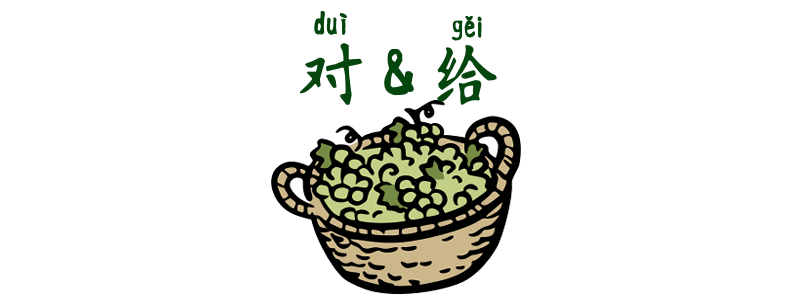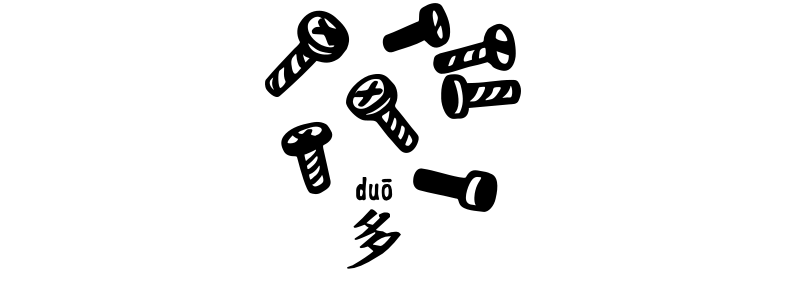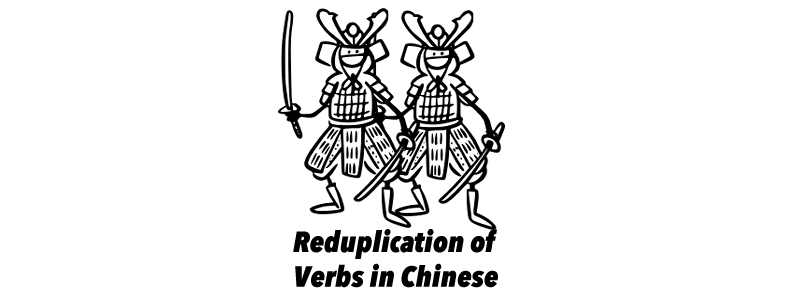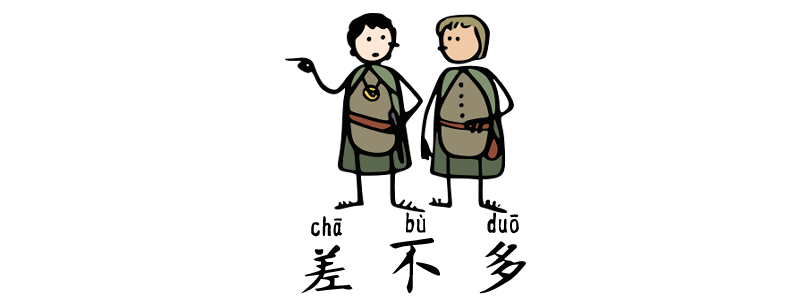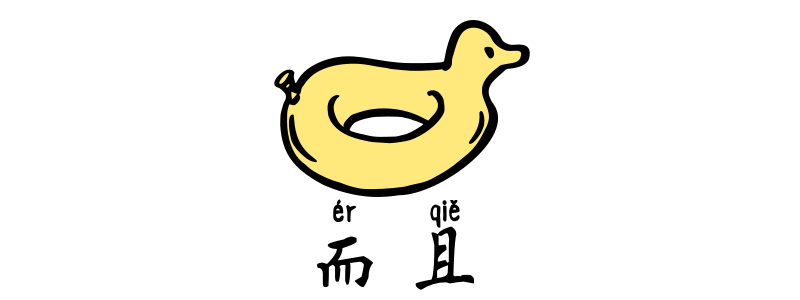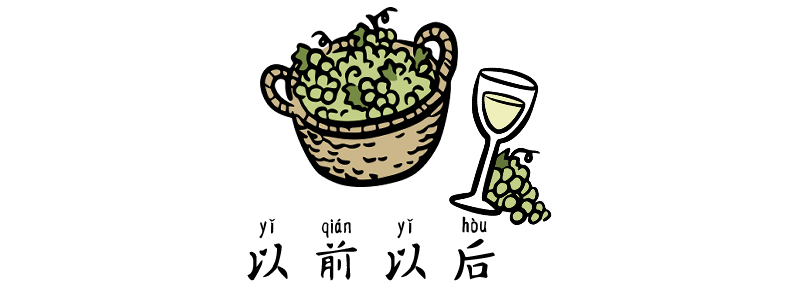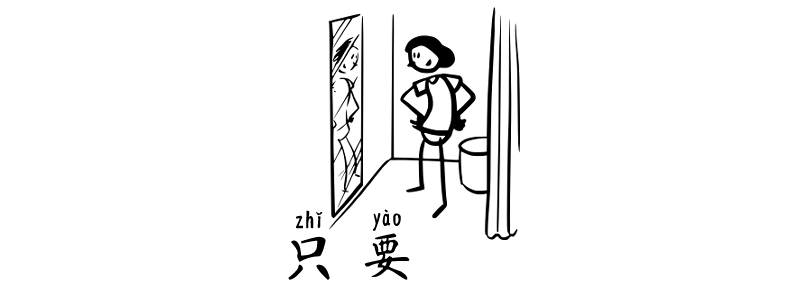Grammar Point:The common function between the Chinese words 對对 duì and 給给 gěi is that they can both be used as prepositions to introduce the target object. 對对 duì In Chinese, 對对 duì can have various meanings and functions depending on the context, but when using it as a preposition, it means “to” or “towards”…
Author: tiffany
“More than” in Chinese – duō
Grammar Point:In Chinese grammar, 多 duō can be used to express a number in excess of a certain amount by adding it to the end of the number. It is translated as “more than…” in English. Structure Number + 多 + Measure word + N We place 多 duō before the measure words when 多…
Reduplication of Adjectives in Chinese
Grammar Point:Reduplication of adjectives intensify the tone of a statement, similar to the way 很 hěn functions as an intensifier. It reflects the speaker’s subjective feelings rather than objective, factual observation. Structure This structure is commonly used in spoken and written Chinese to emphasize a quality or add a sense of lightness, casualness, or emphasis…
“Seems” in Chinese – 好像 hǎoxiàng
Grammar Point:The Chinese word 好像 hǎoxiàng is used to express the English phrase “seems” or “seems like.” It is commonly used to indicate that something appears or gives the impression of being a certain way, but it does not necessarily imply certainty. Structure S + 好像 hǎoxiàng + Comment/Description 好像 hǎoxiàng with a subject means…
Reduplication of Verbs in Chinese 1
Grammar Point:Chinese reduplication of verbs is a linguistic feature in which a verb is repeated to indicate the softening, tentativeness, or brevity of an action. It is commonly used in spoken Mandarin Chinese and some other Chinese dialects. Structure V (一) V It will make your tones more casual and friendly especially when it is…
差不多 Chàbuduō Grammar
Grammar Point:差不多 chābùduōchàbuduō expresses the idea of “not much difference” or “almost the same.” It is often used to describe a situation where two things or situations are very similar or nearly identical. Structure S1 + (and + S2) + 差不多 Verb – It general means “about the same” in English. 我們wǒmen的de年紀niánjì差不多chābùduō我们wǒmen的de年纪niánjì差不多chàbuduōOur ages are about…
“Furthermore” in Chinese – érqiě
Grammar Point:In Chinese, “furthermore” can be expressed using the word 而且 érqiě. It’s a conjunction used to connect related information, often adding emphasis. Structure S + V/Adj +,而且 érqiě + V/Adj 台灣Táiwān的de水果shuǐguǒ甜tián而且érqiě便宜piányí台湾Táiwān的de水果shuǐguǒ甜tián而且érqiě便宜piányiTaiwanese fruits are sweet and inexpensive. 我wǒ每天měitiān都dōu有yǒu中文zhōngwén課kè, 而且érqiě我wǒ週末zhōumò的時候deshíhòu還hái做zuò語言yǔyán交換jiāohuàn我wǒ每天měitiān都dōu有yǒu中文zhōngwén课kè, 而且érqiě我wǒ周末zhōumò的时候deshíhòu还hái做zuò语言yǔyán交换jiāohuànI have Chinese classes every day, and during weekends, I also engage in language exchange. 我wǒ這幾天zhèjǐtiān一直yìzhí覺得juéde沒méi胃口wèikǒu,…
Before and After in Chinese
Grammar Point:The terms 以前 yǐqián (before) and 以後后 yǐhòu (after) are Chinese expressions used to indicate time references. Here’s an explanation of their grammar and usage: 以前 yǐqián Time or Verb + 以前 (Before) 你nǐ明天míngtiān8 點diǎn以前yǐqián必須bìxū到dào公司gōngsī你nǐ明天míngtiān8 点diǎn以前yǐqián必须bìxū到dào公司gōngsīYou must arrive at the company before 8 o’clock tomorrow. 我wǒ知道zhīdào我wǒ在zài做夢zuòmèng, 但是dànshì我wǒ希望xīwàng50 歲suì以前yǐqián能néng退休tuìxiū我wǒ知道zhīdào我wǒ在zài做夢zuòmèng, 但是dànshì我wǒ希望xīwàng50 岁suì以前yǐqián能néng退休tuìxiūI know I’m dreaming, but…
“As long as” in Chinese – zhǐyào
Grammar Point:The term “as long as” can be translated to 只要 zhǐyào in Chinese. It is commonly used to express a condition or requirement that needs to be met for something to happen or be true. Structure 只要 + condition + 就 + result 只要zhǐyào你nǐ在zài我wǒ身邊shēnbiān, 我wǒ就jiù會huì很hěn開心kāixīn只要zhǐyào你nǐ在zài我wǒ身边shēnbiān, 我wǒ就jiù会huì很hěn开心kāixīnAs long as you’re by my side, I will…
Newspaper Formal Words
Here are some examples of Chinese informal words and their corresponding formal counterparts, commonly used in newspapers: A~G English Informal Word Formal Word absolutely not 肯定不 kěndìng bù 决非 juéfēi according to 按照 ànzhào 依 yī afraid to 恐怕 kǒngpà 恐 kǒng all 都 dōu 均 jūn, 皆 jiē a little bit 有點点 yǒudiǎn 稍…
